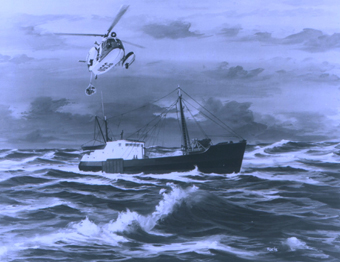I read the opening lines of New York fisherman Mark Lofstad's rescue at sea story with a familiar sense of wonder and fear. What must it be like to recognize that you're in the situation of having to place a distress call? How long must the minutes feel as they tick by when you're awaiting rescue that may or may not come in time? These are the questions I ask myself when I read any survival tale.
With the help of other fishing boats, the Coast Guard came to the rescue for Lofstad and his crew on the F/V Tradition. If only the feds had the same sense of urgency to rescue the entire industry and with it an American tradition that has been set adrift in many ways.
I know some advocates of finfish aquaculture say their business models will offer fishermen a job to turn to when their fisheries can't support their livelihoods anymore. But some of those same businesses consistently contaminate the waters that support wild fisheries.
And as we look down the barrel at FDA-approved Frankenfish salmon, we can no longer deny the brave new world we face. The final frontier isn't out there, in the endless ether of the universe. Rather it's microscopic — contained in the perils of a petri dish. But its possibilities are no less immeasurable. We hold the future in our hands.
Tradition has been set adrift, but it's not underwater, yet. The question is whether rescue will come in time.
Illustration: Artist's rendering of a successful rescue at sea; USCG







